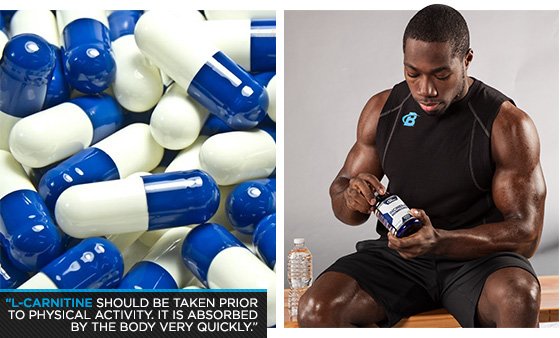Why do you train? Is it the rush, the burn, the chiseled physique that gets noticed by complete strangers when you wear baggy clothes?
While the reasons are often insignificant, the rewards are generally immeasurable. And it makes no difference whether you fall under the title of bodybuilder, powerlifter or endurance junkie. Because at the end of the day, you're still an athlete with a passion for what you do. And as fate would have it, athletes share one very common and disheartening obstacle—the wall.
Now unless you're new to the lifestyle, you've probably learned a thing or two about your body. How it responds to stress, where your breaking point lies, how much fluid you require to make it through a high-impact session, the list goes on.


What many athletes fail to realize is that these excruciating training sessions demand enormous nutritional support.
The days of simply popping some mass-marketed discount multivitamin are dead. Fortunately, the nutritional sciences have blessed us with a wealth of supplements designed entirely around the seemingly endless needs of today's hardcore endurance athlete. L-Carnitine is among one of the best examples.
Discovered in 1905 by two Russian researchers, L-carnitine is widely regarded as one of the most effective ways to foster endurance, burn fat and shorten post-workout recovery times.
As a result, this amino-like substance has become a staple supplement with endurance athletes, bodybuilders and scores of health conscious individuals worldwide.
Deep inside every cell are microscopic sweatshops known as mitochondria. The sole function of L-carnitine is to transport the fatty acids from food (including those difficult to burn brown and saturated fats) into the mitochondria.
From there, they're converted into energy that can be used immediately. Now it doesn't take a Pfizer engineer to justify how beneficial this is to endurance athletes.
Every movement you make is at the mercy of this process, and without adequate levels of L-carnitine, your system becomes vulnerable to muscle failure, fatigue and snail-like sluggishness.
In contrast, a well-stocked reserve of L-carnitine allows you to convert stored fat into expendable energy. This ultimately allows you to train harder and longer without the nervous jitters of stimulants and caffeine.
The benefits don't stop at the end of your session. Since its discovery, more than 18,000 published studies have examined the benefits of L-carnitine. As a result, it's become one of the top studied dietary supplements ever introduced.
The most notable have evaluated its ability to improve memory and mental capacity, heal sports-related injuries, support the cardiovascular system, boost male fertility and promote healthy skin.
Even more interesting, over 300 studies are conducted each year as technology continues to evolve.
As with any supplement, always read the labels with extreme scrutiny. Look for the words "Manufactured BY" and avoid those that read "Manufactured FOR".
Manufacturers are held to strict quality control, subject to surprise inspections and for the most part, take the quality of their products very seriously.
With L-carnitine, make sure to choose one that clearly reads "L" carnitine. There's also a D-carnitine, but most retailers don't even stock this "mirror" strain. You'll have your choice of tablet, capsule and liquid. Each is effective, but releases in different fashion.

L-carnitine should be taken prior to physical activity, and is absorbed by the body very quickly. If you're on your way to the gym, liquid or capsules are your best bet.
By the time you hit the weights or the elliptical, the L-carnitine in your system will be begging for you to give it something to do. Endurance and high-impact athletes tend to benefit best from tablet form, as they're known to release in a slower manner.
Start off with 500 mg on an empty stomach. This is a completely safe dose that can help the body adjust to its presence.
From there, feel free to adjust upward as you see fit. While the requirements vary from person to person, you won't need more than 1000-1500 mg per session.
L-carnitine appears to be very safe when taken as indicated. But as always, use caution when taking any supplement and pay attention to the signs your body gives you. If anything seems askew, discontinue use immediately and consult your physician.
